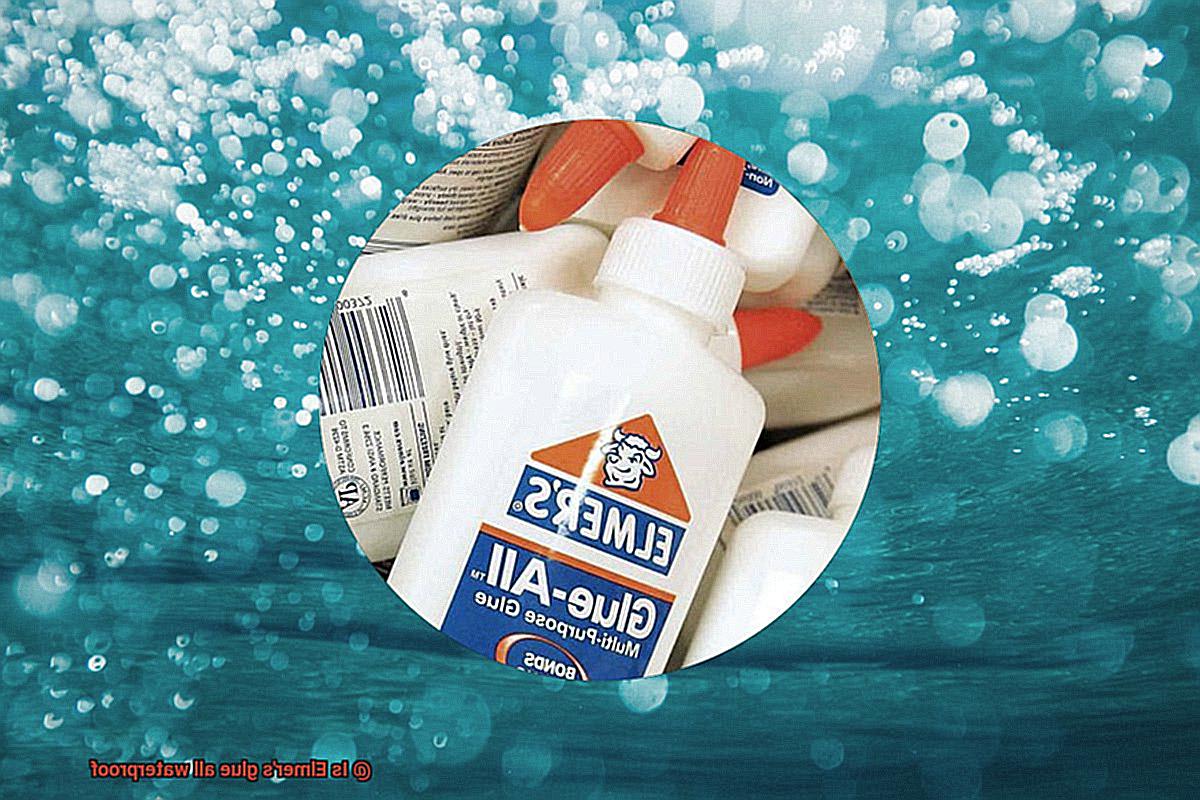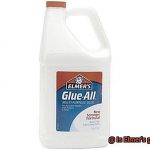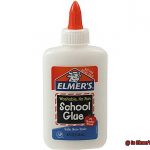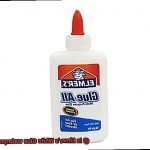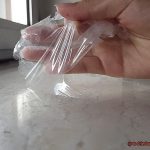If you’re someone who loves to get creative, chances are that you’ve used Elmer’s Glue-All at least once in your life. It’s a popular adhesive that’s known for its versatility, affordability, and strong hold. But when it comes to water resistance, things get a bit murky.
You may be wondering: is Elmer’s Glue-All waterproof? After all, no one wants to spend hours on a project only for it to fall apart when exposed to a little moisture. In this blog post, we’ll dive into the world of Elmer’s Glue-All and explore whether or not it can withstand exposure to water.
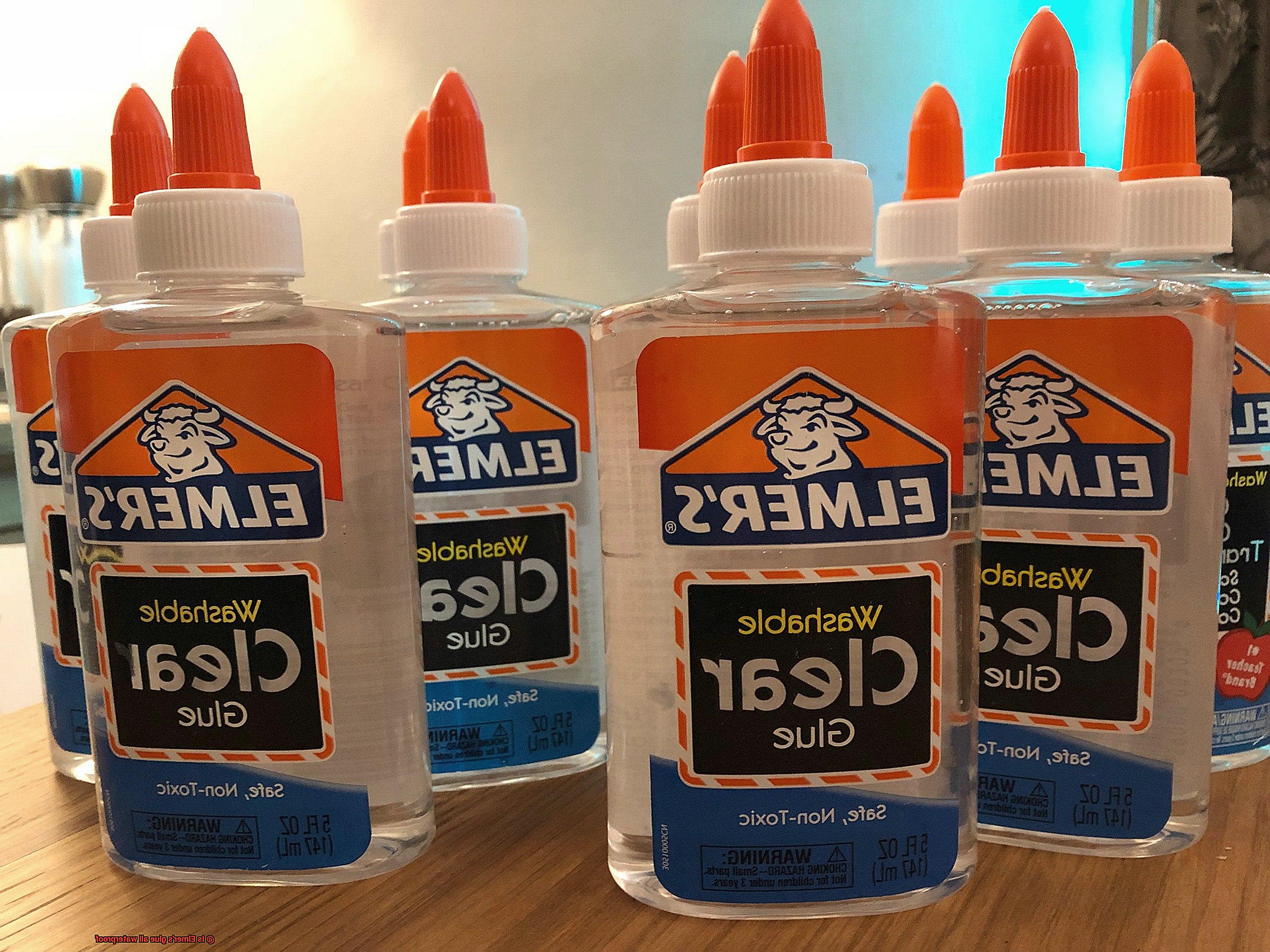
We’ll examine the label and ingredient list, conduct our own experiments, and give you the lowdown on this popular adhesive. Whether you’re working on a project that may encounter some rain or moisture or just curious about the properties of Elmer’s Glue-All, this post is for you.
So buckle up and get ready to discover if Elmer’s is truly waterproof. We’ll take you on a journey through the world of adhesives and leave no stone unturned in our quest for answers.
What is Elmer’s Glue?
Contents
For over 70 years, Elmer’s glue has been a go-to adhesive for various projects in schools and households. But what exactly is this popular glue, and why is it so trusted?
Elmer’s glue is a type of adhesive made from a mixture of polyvinyl acetate (PVA), water, and other additives. PVA is a synthetic polymer that acts as the bonding agent, resulting in a strong bond that can be used on different surfaces.
Elmer’s glue comes in different formulations, each with its unique properties. The most common type is the white school glue, which is water-soluble and easy to clean up with water. This type of glue is not waterproof and will dissolve when exposed to water.
However, Elmer’s also produces other types of glue that are specifically designed to be waterproof. For instance, Elmer’s Carpenter’s Wood Glue Max is perfect for outdoor projects like building birdhouses or repairing wooden furniture. Another type of waterproof glue made by Elmer’s is the clear glue, which dries clear and can be used for sealing envelopes or creating a water-resistant barrier on paper crafts.
It’s important to note that not all formulations of Elmer’s glue are waterproof. Some varieties may break down or lose their adhesive properties when exposed to water. Therefore, it’s essential to read the label carefully before purchasing any Elmer’s glue to ensure it suits your intended application.
Different Types of Elmer’s Glue
Elmer’s glue has been a go-to adhesive for over seven decades, and it’s no surprise why. With several different types of Elmer’s glue available on the market, each with its unique properties and uses, it’s important to understand the differences between them.
The classic white glue is the most common type of Elmer’s glue, perfect for a variety of craft projects, including paper, cardboard, and other porous materials. While not entirely waterproof, it does have some water-resistant properties that make it suitable for use in humid environments or with materials that may be exposed to occasional moisture.
For little ones, the washable school glue is a popular choice. Designed specifically for children, it’s safe and non-toxic. This glue is washable, meaning it can be easily cleaned up with water. While not entirely waterproof, it does offer some resistance to moisture.
If you need a stronger adhesive that can withstand more extreme conditions, there are several types of Elmer’s glue designed for industrial or heavy-duty use. These types of glue often contain stronger bonding agents and may be waterproof or water-resistant to varying degrees.
One such example is the Elmer’s Carpenter’s Wood Glue Max. Specially formulated for use with wood, this type of glue offers a strong, waterproof bond that can withstand even the toughest conditions.
Overall, while not all types of Elmer’s glue are entirely waterproof, there are several options available that offer varying degrees of water-resistance depending on your needs. Remember to choose the right type of glue for your project and consider factors such as the materials you’re working with and the conditions your project may be exposed to.
Is White School Glue Waterproof?
Although this type of glue may be able to handle light moisture or occasional splashes of water, prolonged exposure to water will cause the glue to break down and lose its adhesive properties. This means that any items you’ve glued together with white school glue may become loose or fall apart if left in contact with water for an extended period of time.
You might be thinking: “What about the specialized types of white school glue that claim to be water-resistant?” While it is true that some variations of white school glue are designed to be more water-resistant than others, it is important to keep in mind that they are not entirely waterproof and should not be relied on for long-term exposure to water.
If you require an adhesive that can withstand exposure to water and moisture, consider alternative options such as epoxy or silicone adhesives. These types of adhesives offer superior waterproofing capabilities and are ideal for projects that require a strong, long-lasting bond in wet conditions.
Elmer’s Carpenter’s Wood Glue Max
Look no further than Elmer’s Carpenter’s Wood Glue Max. This water-resistant adhesive is a popular choice for woodworkers who need an adhesive that can withstand exposure to moisture. However, it’s important to keep in mind that while this glue is water-resistant, it’s not completely waterproof.
It’s crucial to note that the level of water-resistance may vary depending on the application and materials being used. While this glue can hold up well in damp or humid conditions, it may not be suitable for projects that will be submerged in water for an extended period.
When using Elmer’s Carpenter’s Wood Glue Max, it’s recommended to apply a thin layer of the adhesive to both surfaces being bonded and then clamp them together until the glue dries. This will ensure a strong bond that can handle exposure to moisture.
Elmer’s Clear Glue
Elmer’s clear glue is a creative powerhouse, an adhesive that has become a staple in craft projects, school projects, and industrial settings. What makes it stand out from its competitors is its clear and transparent finish that gives your project a clean and polished look. However, the burning question on everyone’s mind is whether this versatile glue is waterproof.
Well, the short answer is no. Elmer’s clear glue is not specifically designed to be waterproof. Although it can resist water to some extent, it is not completely waterproof. This means that prolonged exposure to water or moisture can cause the glue to break down. So if you’re planning on using Elmer’s clear glue for a project that will be exposed to water or moisture, like a fish tank or outdoor sign, you may need to consider using a different type of adhesive.
But don’t let this dampen your creativity. There are ways to improve the water resistance of your Elmer’s clear glue projects. For instance, you can mix the glue with a small amount of water-resistant sealant or use waterproofing spray after the glue has dried. Additionally, there are specialty versions of Elmer’s glue available that are designed to be more water-resistant than the standard clear glue option.
How to Choose the Right Type of Glue for Your Project
Crafting and DIY projects are all about turning your imagination into reality. However, creating a lasting project requires choosing the right type of glue. With so many different adhesives available, it can be overwhelming to decide which one will work best for your project. Here are some tips on how to choose the right type of glue for your project.
Consider the materials you will be bonding together.
Choosing the right adhesive depends on the materials you’ll be bonding together. For example, if you’re working with wood, use wood glue like Titebond III. If you’re working with plastic, use plastic cement like Testors Cement for Plastic Models. Choosing the right adhesive will ensure your project stays together.
Determine the strength of the bond you need.
The strength of the bond you need is dependent on your project’s requirements. For a strong, permanent bond, choose high-strength adhesives like epoxy or super glue. However, if you need to make adjustments or reposition parts before the glue dries, choose slower-drying adhesives like white glue.
Factor in the drying time.
Some adhesives dry quickly while others take longer to set. If time is critical, choose quick-drying adhesives. But if you want a strong bond that lasts long, opt for slower-drying adhesives that will set firmly over time.
Consider the environment in which your project will be used.
If your project will be exposed to water or moisture, choose waterproof or water-resistant adhesives like polyurethane-based glue such as Gorilla Glue or epoxy-based glue like Devcon Epoxy. Elmer’s Glue-All is not waterproof, so if your project will be exposed to water, choose a different type of adhesive.
Read the label carefully.
Always read the label before purchasing any type of glue. Make sure it is suitable for your intended application and meets your project’s requirements. Adhesives are designed to work with specific materials and conditions, so it’s essential to use the right one for your project.
e7P4KFmgIcM” >
Also Read: Is Elmer’s Glue Waterproof?
Conclusion
In summary, Elmer’s glue has been a go-to adhesive for many crafters and DIY enthusiasts for over seven decades. While the classic white school glue is not waterproof, Elmer’s offers an array of glues that cater to different needs, including water-resistant and waterproof options. It’s crucial to read the label carefully before purchasing any Elmer’s glue to ensure it suits your intended use.
The typical white school glue may offer some resistance against water, but it won’t hold up in prolonged exposure to moisture. If you’re working on a project that requires a strong bond in wet conditions, alternative options such as epoxy or silicone adhesives are recommended.
For woodworkers who need an adhesive that can withstand exposure to moisture, Elmer’s Carpenter’s Wood Glue Max is a popular choice. However, keep in mind that while this glue is water-resistant, it isn’t entirely waterproof.
If you’re looking for a creative powerhouse with a transparent finish, Elmer’s clear glue is the way to go. Although it can resist water to some extent, it isn’t entirely waterproof. You can enhance its water resistance by mixing it with a small amount of water-resistant sealant or using waterproofing spray after the glue dries.
When selecting the right type of glue for your project, consider factors such as the materials you’re bonding together, drying time, strength of bond needed and environmental conditions in which your project will be used.

